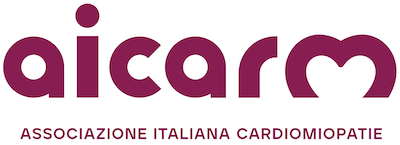of the Dr. Alessandra Pistelli SODc Medical Toxicology and Poison Control Centre, Regional Reference Center for Perinatal Toxicology, AOU Careggi, Florence
 The need to manage a cardiovascular pathology during pregnancy has increased over the years, both due to the progressive increase in maternal age at the first pregnancy and the improvement of surgical techniques for the correction of congenital heart defects, which allows a greater number of women to lead a regular life and reach fertile age, together with the increasingly frequent use of medically assisted procreation (PMA) techniques, which favors the establishment of a pregnancy at a more advanced maternal age.
The need to manage a cardiovascular pathology during pregnancy has increased over the years, both due to the progressive increase in maternal age at the first pregnancy and the improvement of surgical techniques for the correction of congenital heart defects, which allows a greater number of women to lead a regular life and reach fertile age, together with the increasingly frequent use of medically assisted procreation (PMA) techniques, which favors the establishment of a pregnancy at a more advanced maternal age.
It is important to remember that cardiovascular diseases represent the most frequent cause of maternal death during pregnancy..
The European Society of Cardiology (ESC) updated the Guidelines for the treatment of cardiovascular diseases in pregnancy in 2018 with a new version which underlines the importance of an assessment of reproductive risk before conception, following the classification of cardiovascular risk of the WHO, which correlates the diagnosis of heart disease with the probability of complications and adverse events. It also provides suggestions for appropriate counseling and care for the pregnant woman.
During pregnancy, changes occur in the function of organs and systems necessary to address the increased metabolic needs of mother and fetus. Plasma volume and cardiac output, and consequently the work done by the heart, increase up to 50% at the 32nd week of gestation. Then other functions also change and in particular there is a state of hyper-coagulability which increases the risk of thrombosis and even embolism. Finally, women suffering from cardiovascular disease have a greater risk of complications during childbirth, with a variable percentage depending on the type of pathology. From what has been described above, a clear indication emerges for the management of these pregnancies by a group multidisciplinary which includes specialists in cardiology, obstetrics, obstetric ultrasound and echocardiography, perinatal toxicology, paediatrics.
Therapy during pregnancy involves the use of various drugs and cardiomyopathies, in their diversity, they are an emerging type of heart disease, in terms of doctors' knowledge, and also treatment, with a series of old and new drugs.
To begin we will examine the family of beta-blockers, used in the treatment of some cardiomyopathies, cardiac arrhythmias and arterial hypertension.
Beta-blockers do not cause the appearance of congenital defects in the experimental animals on which they were tested, but may be responsible for growth retardation, hypoglycemia and neonatal bradycardia.
The risk of malformations in our country can be estimated at around 3-5% of live births due to minor and major defects, and it is what all women present during pregnancy and can be increased due to exposure to toxic, environmental and some pharmacological cases. Beta-blockers are drugs of choice in human pregnancy and are not responsible for an increased risk of birth defects.
Treatment with beta-blockers throughout pregnancy may also be associated with intrauterine growth retardation and low birth weight infants. This effect is less frequent when selective beta blockers such as can be used bisoprolol e metoprolol, while it is more frequent for non-selective beta-blockers such as atenolol e nadolol which is the one with the longest half-life.
Among the drugs active on alpha and beta receptors, the labetalol is the molecule of choice.
In the first days of life of the newborn, exposed through the placenta to prolonged therapies in the mother, tremors, hypoglycemia and episodes of bradycardia may occur which require a few days of observation and which generally resolve spontaneously.
In most cases, pharmacological treatment with beta blockers during pregnancy is not only not contraindicated, but is absolutely recommended to maintain good clinical compensation of Cardiomyopathy, of fundamental importance for the regular progress of the pregnancy itself.
The Regional Reference Center for Perinatal Toxicology of the Careggi University Hospital of Florence provides information on the possible adverse effects of drugs on the course of pregnancy and fetal development and answers the number 0557946731 every day from 9am to 19.30pm. The Center also responds to questions regarding breastfeeding by mothers under pharmacological therapy.
